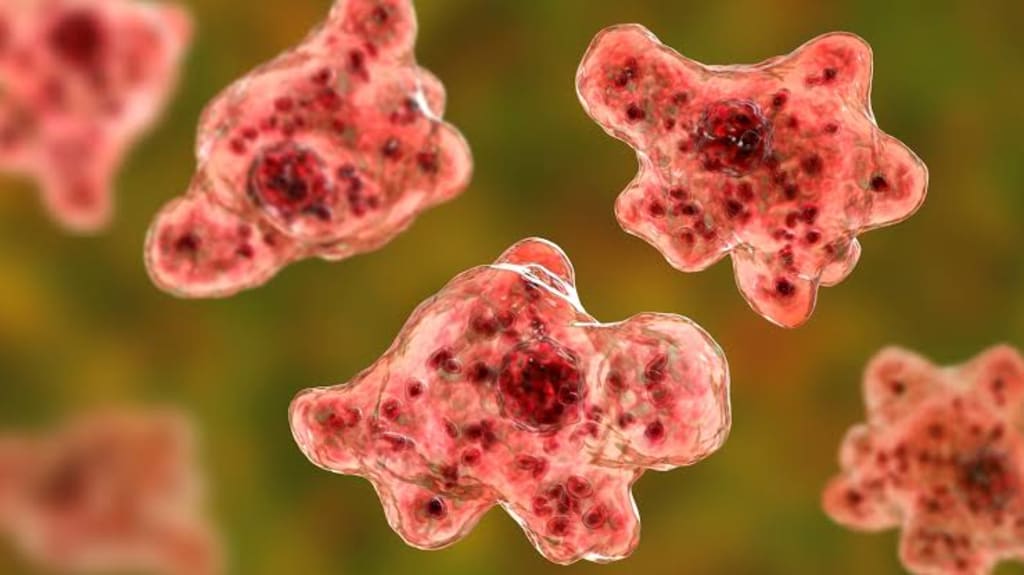
[Disclaimer: This Article is only for educational purposes. It includes content written by AI]
In July 2023, a 15-year-old boy from Kerala, India, died after being infected with a rare and deadly brain-eating amoeba called Naegleria fowleri. The incident has raised concerns about the potential dangers of this microscopic organism and how to protect oneself from infection. In this article, we'll take a closer look at brain-eating amoebas and what you need to know to stay safe.
What is Naegleria fowleri?
Naegleria fowleri is a type of amoeba that is commonly found in warm freshwater such as lakes, rivers, and hot springs. It can also be found in soil and unchlorinated swimming pools. The amoeba can enter the body through the nose and travel to the brain, where it causes a rare and often fatal infection called primary amebic meningoencephalitis (PAM).
How does infection occur?
Infection with Naegleria fowleri occurs when contaminated water enters the nose. This can happen when swimming or diving in freshwater, or when using contaminated tap water for activities such as nasal irrigation or neti pot use (remember: this Amoeba is very rare, so no-need to be panic). Once the amoeba enters the nose, it travels up the olfactory nerve to the brain, where it begins to destroy brain tissue.
Symptoms and Diagnosis
The symptoms of PAM typically begin 2-15 days after infection and include headache, fever, nausea and vomiting, stiff neck, confusion, seizures, and hallucinations. The infection progresses rapidly and can cause coma and death within a few days. Diagnosis of PAM is usually made through a combination of clinical symptoms and laboratory tests such as spinal fluid analysis.
Prevention and Treatment
Prevention is key when it comes to avoiding infection with Naegleria fowleri. Here are some tips:
1. Avoid swimming or diving in warm freshwater or using untreated tap water for nasal irrigation or neti pot use.
2. If you do swim in freshwater, wear a nose clip or hold your nose shut.
3. Keep swimming pools and hot tubs properly chlorinated and maintained.
4. Boil tap water for at least one minute before using it for activities such as nasal irrigation or neti pot use.
5. Use only distilled or sterile water for nasal irrigation or neti pot use.
There are currently no effective treatments for PAM. However, early diagnosis and aggressive supportive care can help improve outcomes. Antifungal drugs and other experimental treatments are being studied, but their effectiveness is uncertain.
The Kerala Incident
The recent death of a 15-year-old boy in Kerala, India, has brought attention to the dangers of Naegleria fowleri. The boy reportedly contracted the infection after swimming in a pond near his home. Despite receiving treatment, he died within a few days of being diagnosed.
Following the incident, local authorities issued warnings to the public and urged people to avoid swimming in ponds and other natural bodies of water. The authorities also advised residents to use only boiled or chlorinated water for drinking and other activities.
Global Incidents
While rare, incidents of PAM caused by Naegleria fowleri have been reported around the world. In the United States, for example, there have been several cases of PAM over the years, with most occurring in the southern states during the summer months. In 2020, a 10-year-old girl from Texas died after contracting the infection from a public water park.
In Australia, a 7-year-old boy died in 2019 after swimming in a river and contracting PAM. The incident prompted authorities to issue warnings to the public and highlight the importance of preventive measures.
Conclusion
Brain-eating amoebas such as Naegleria fowleri are rare but deadly organisms that can cause a devastating infection. The recent death of a young boy in Kerala, India, is a tragic reminder of the importance of prevention. By following the above tips and avoiding exposure to contaminated water, you can greatly reduce your risk of infection. If you experience any symptoms of PAM after swimming or using tap water, seek medical attention immediately. With awareness and preventive measures, we can all stay safe from this dangerous organism.
Share this article & spread more awareness about this rare but deadly brain-eating Amoeba.
Thank you for reading...






Comments
There are no comments for this story
Be the first to respond and start the conversation.